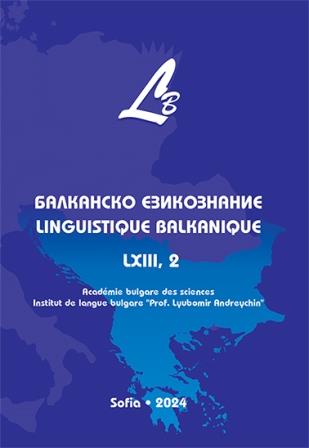On the Turkish Origin of an Obsolete and Rare Bulgarian Word
On the Turkish Origin of an Obsolete and Rare Bulgarian Word
Author(s): Hristina DeykovaSubject(s): Language studies, Language and Literature Studies, Theoretical Linguistics, Applied Linguistics, Lexis, Semantics, Descriptive linguistics, South Slavic Languages
Published by: Институт за български език „Проф. Любомир Андрейчин“, Българска академия на науките
Keywords: etymology; Turkish borrowings in Bulgarian; emotional-evaluative vocabulary
Summary/Abstract: The object of analysis in this work is the origin of a rare Bulgarian word with emotional-evaluative semantics, which has been documented in writing from the late 19th century. Various phonetic, word-forming and semantic variants are found in the available sources: хългіз, хългізин, хілгізник, хългàзник, etc. The explanations of the word from S. Mladenov (1920) and A. Nichev (1979) are, in our opinion, unsatisfactory. The former points to a Slavic origin of the word, while the latter defines it as a Spanish word that entered Bulgarian through Judeo-Spanish. The article proposes a new etymological hypothesis, according to which the word is a loanword from the Turkish language. In contrast to the previous two etymological attempts, all formal variants are explained here, with the semantic diffuseness rooted in the peculiarities of the emotional or expressive vocabulary. The broad position of Turkisms in this layer of vocabulary in the Bulgarian language is also taken into account.
Journal: Балканско езикознание / Linguistique balkanique
- Issue Year: 63/2024
- Issue No: 2
- Page Range: 141-149
- Page Count: 9
- Language: English
- Content File-PDF

